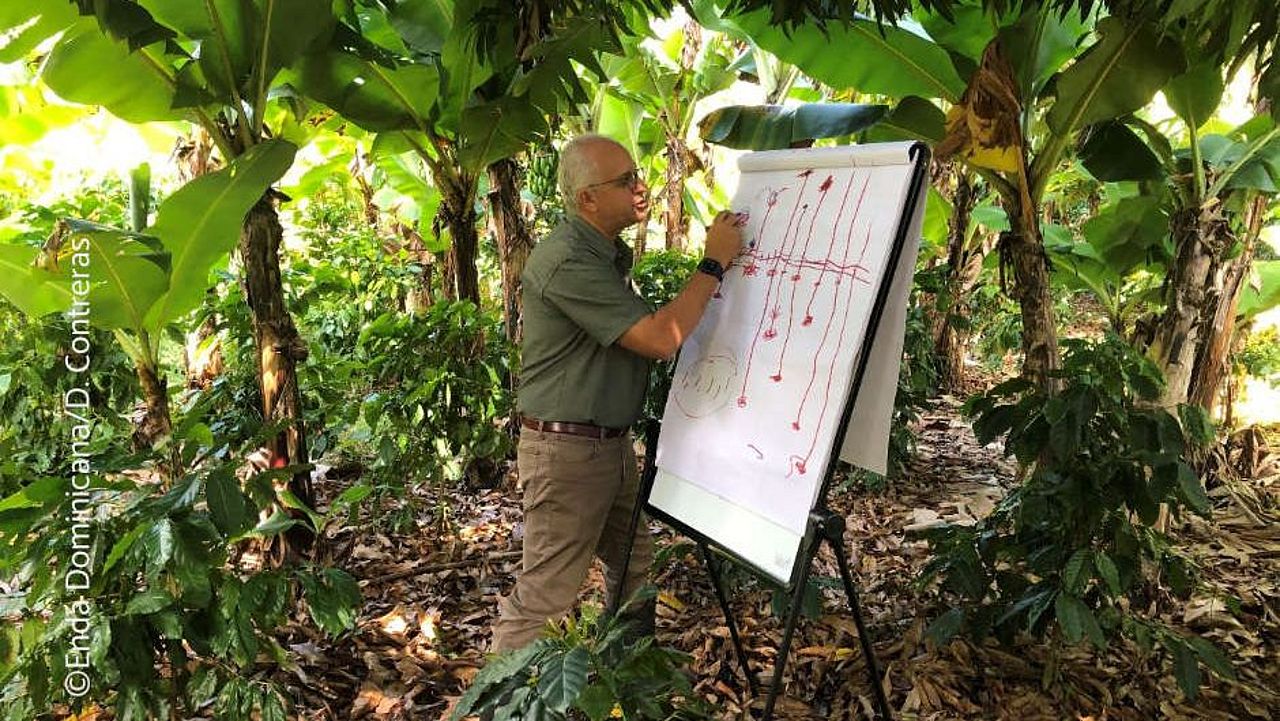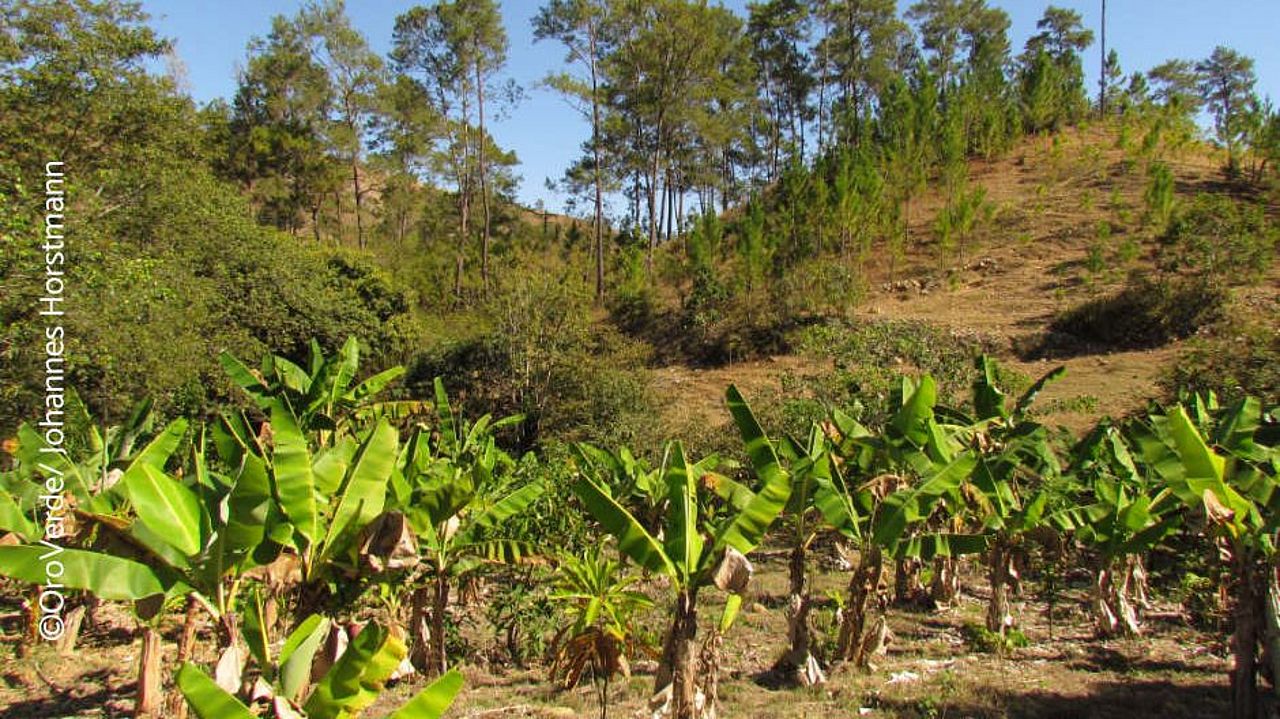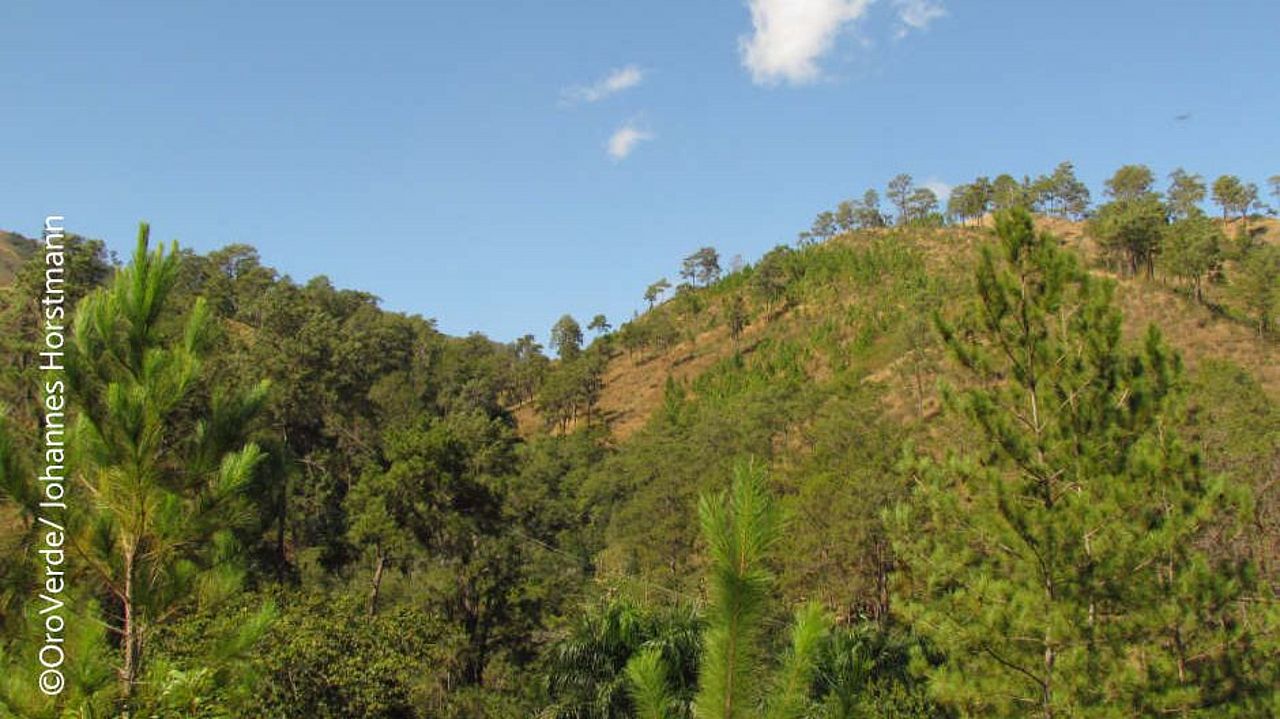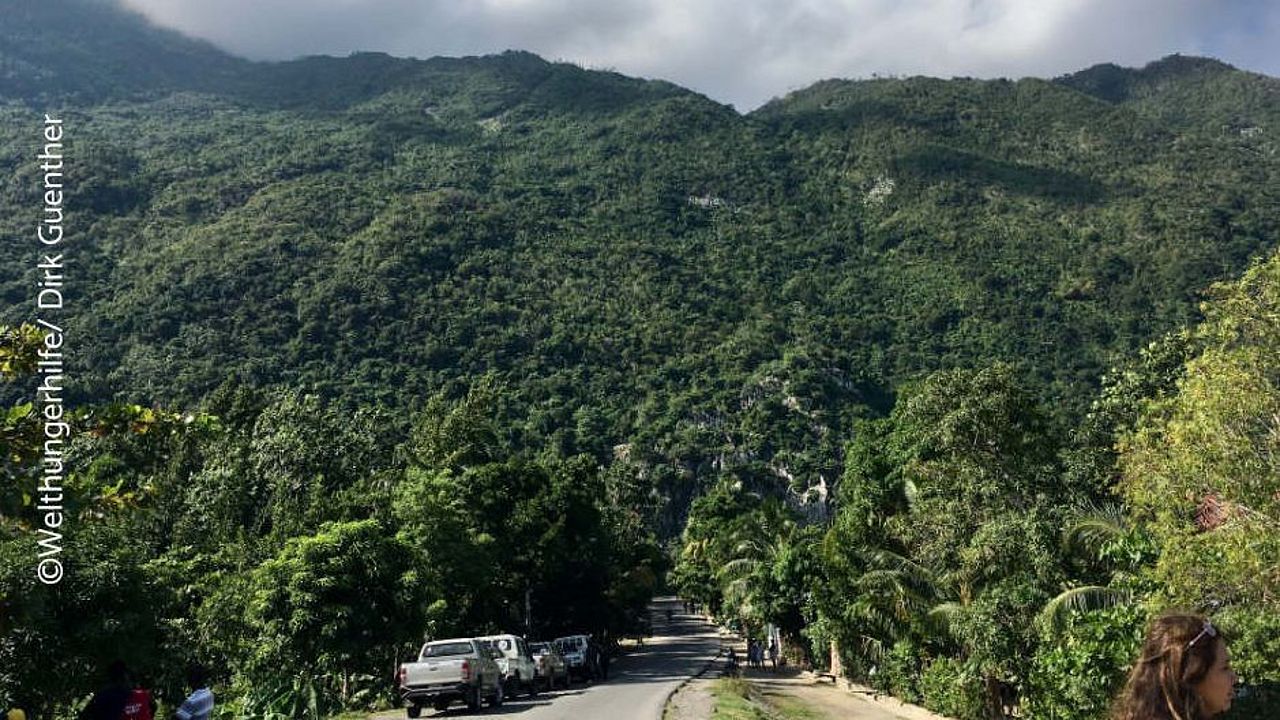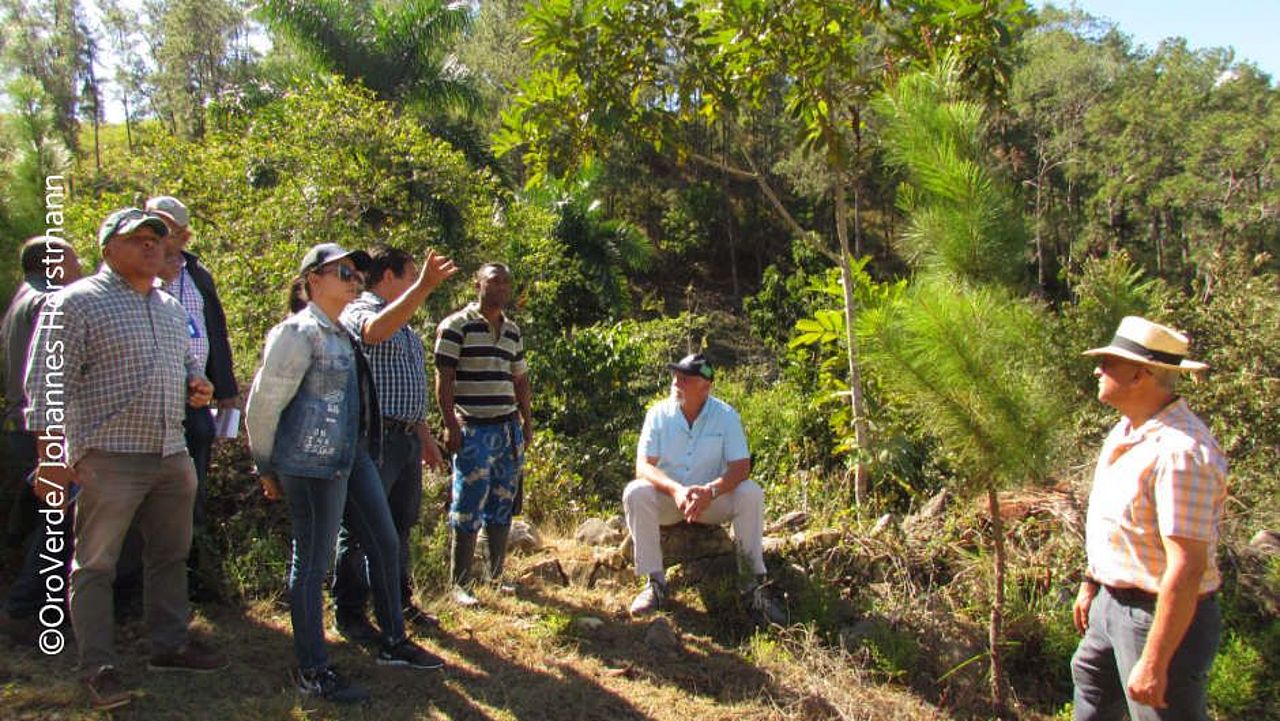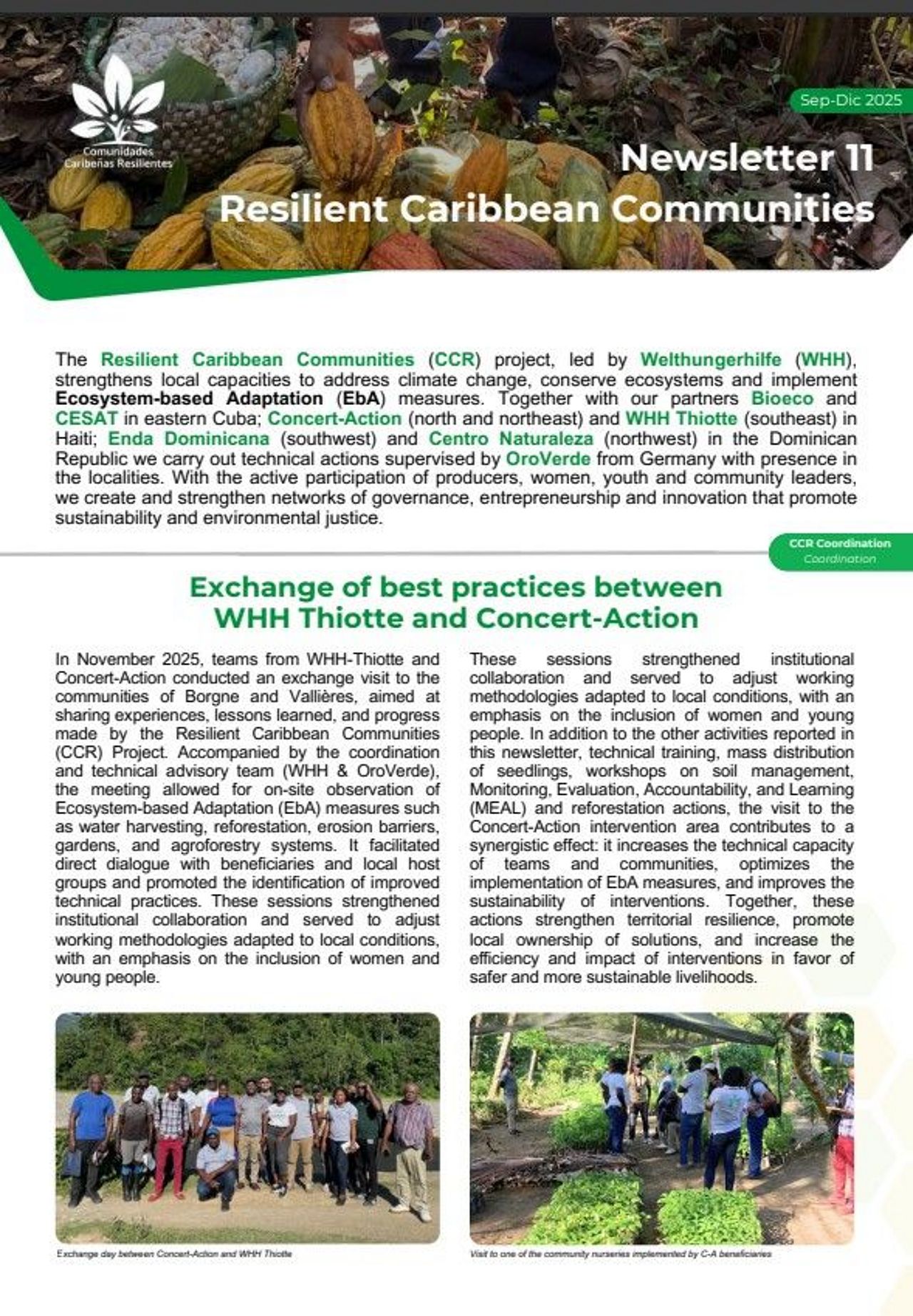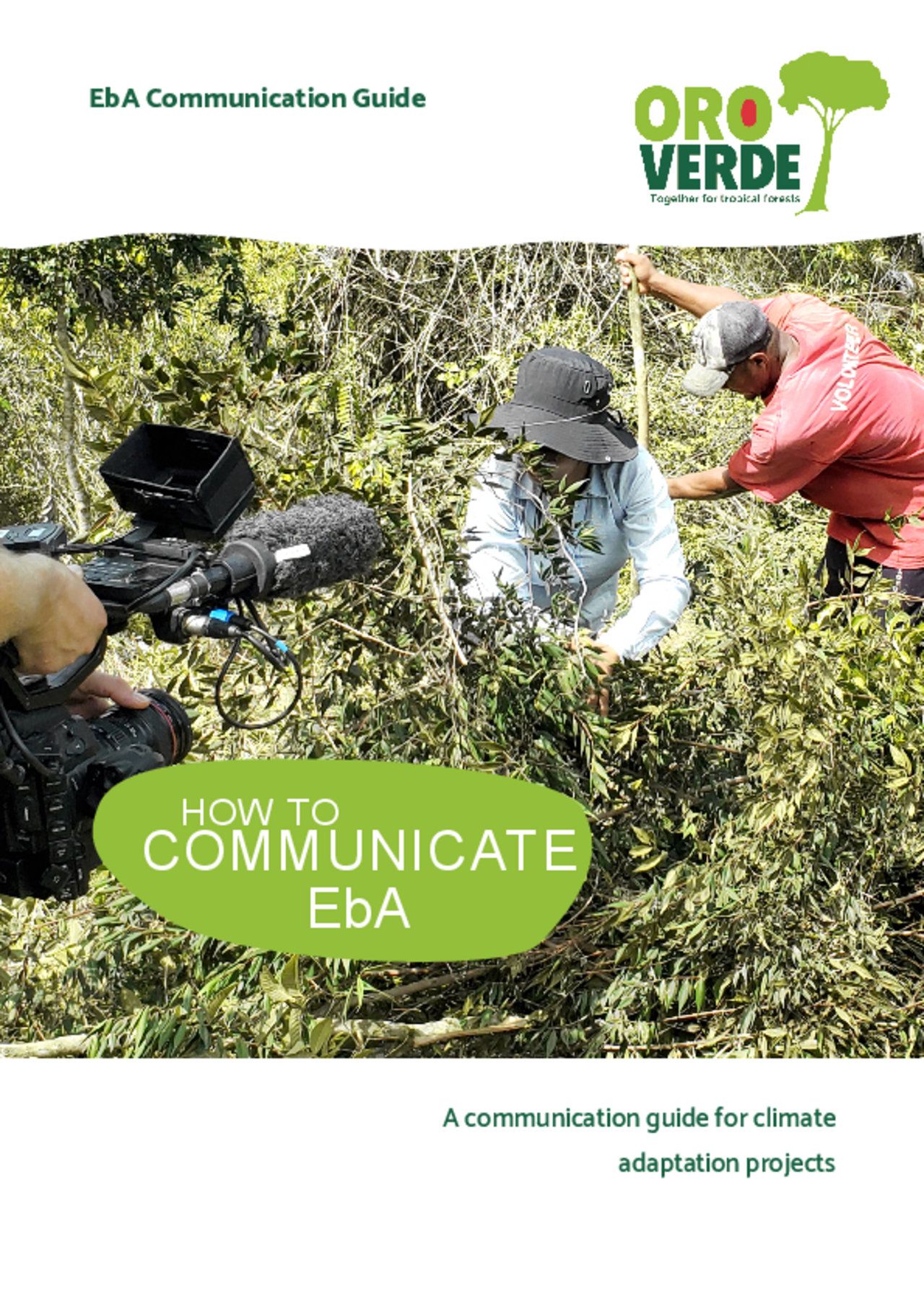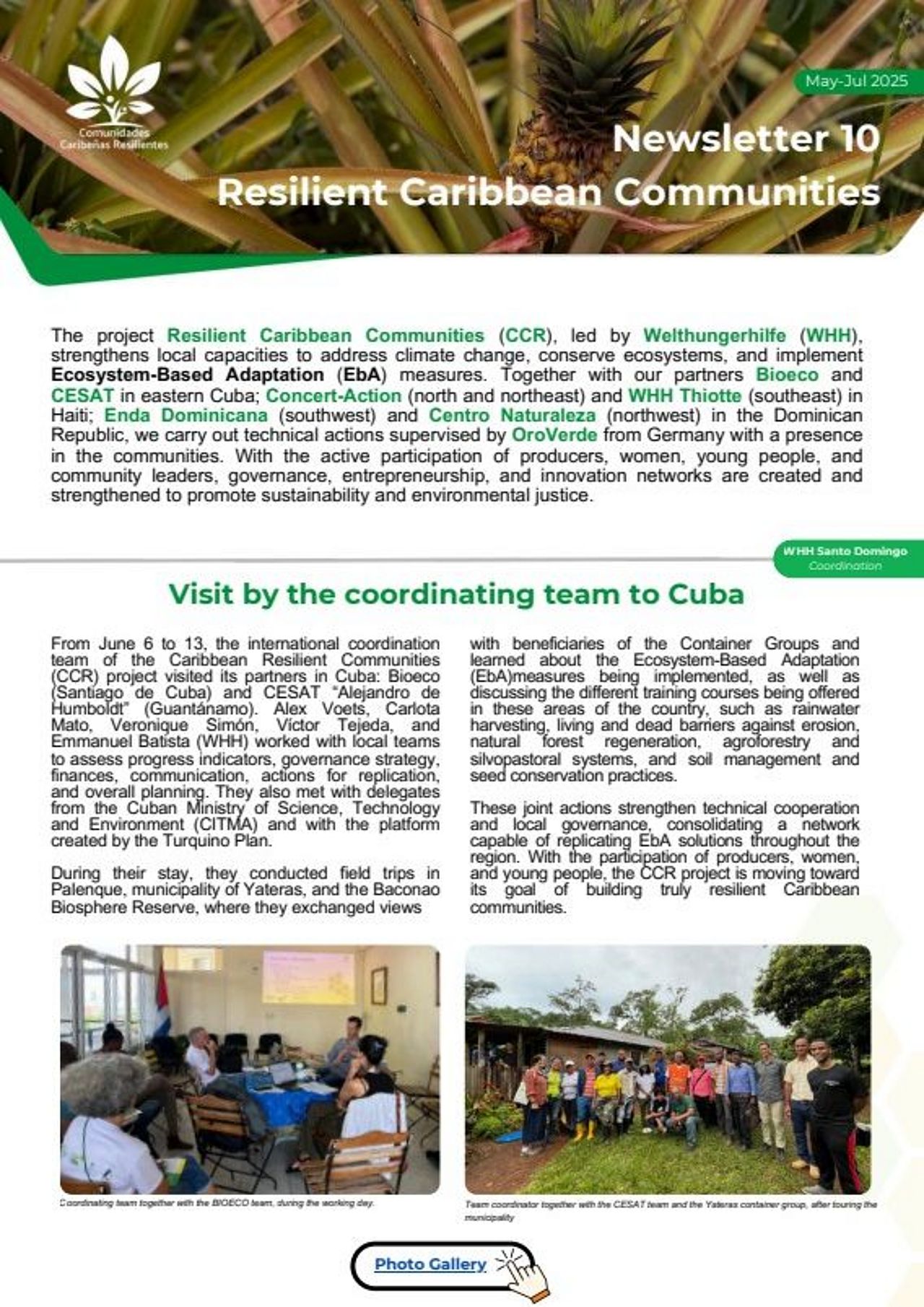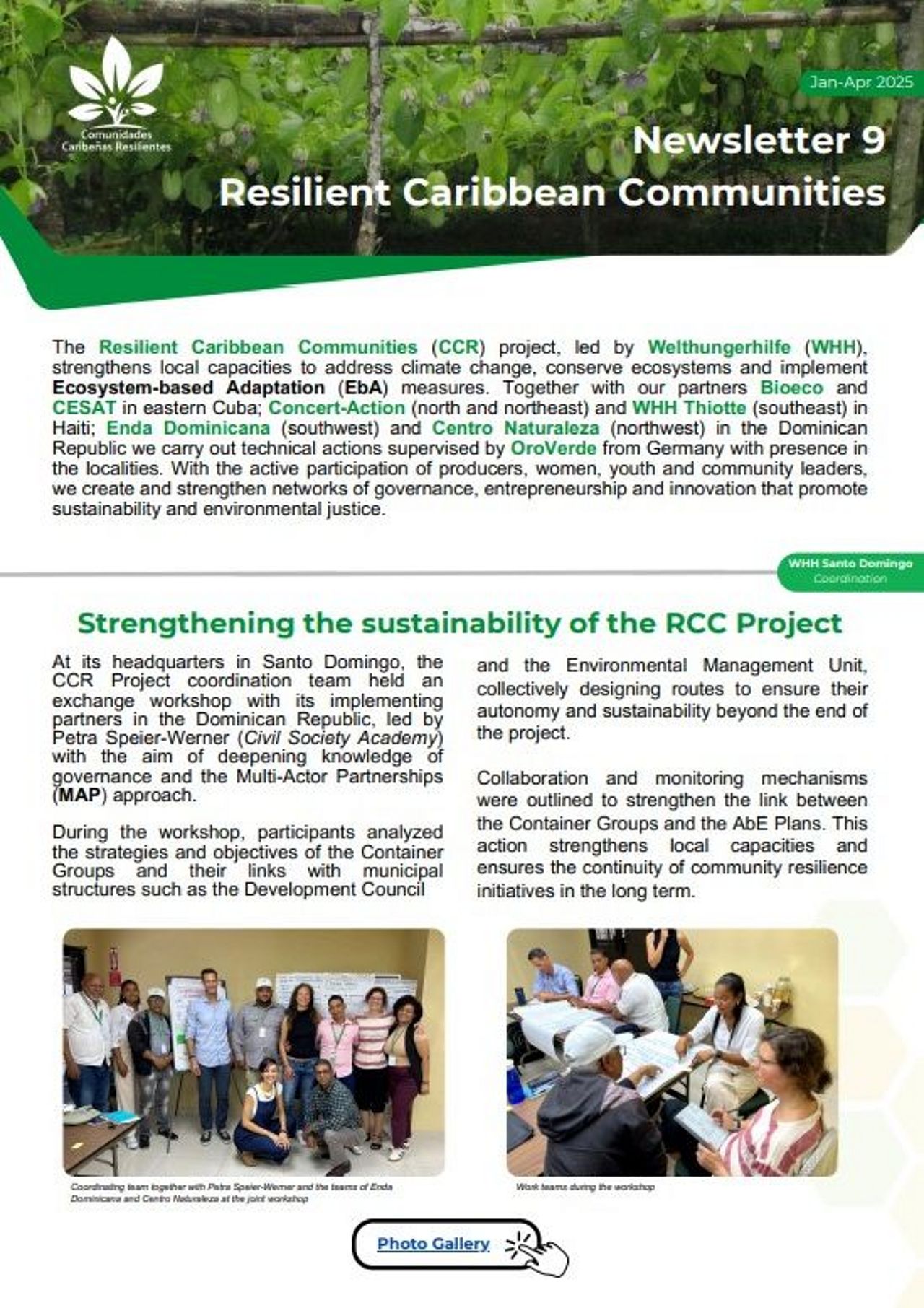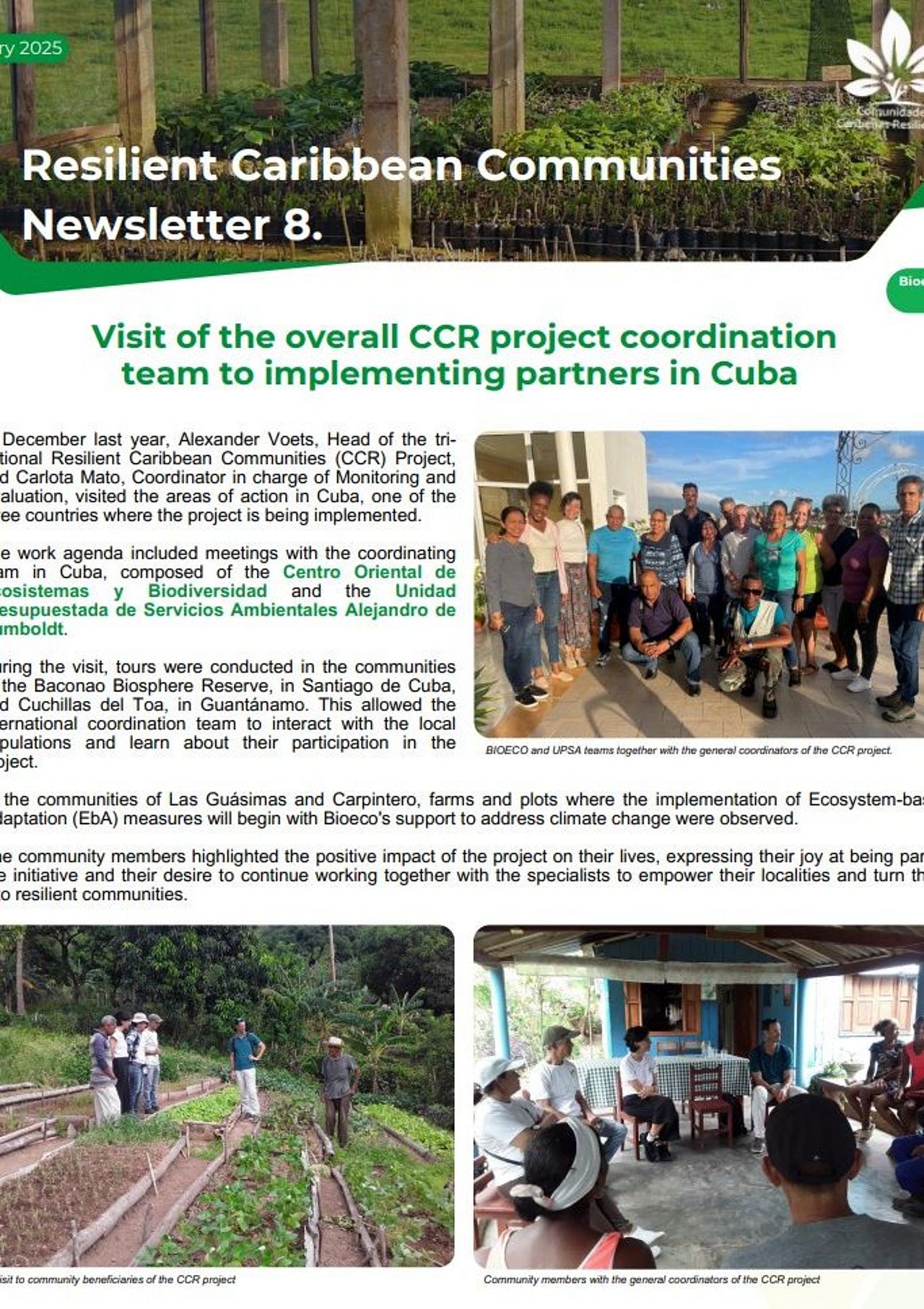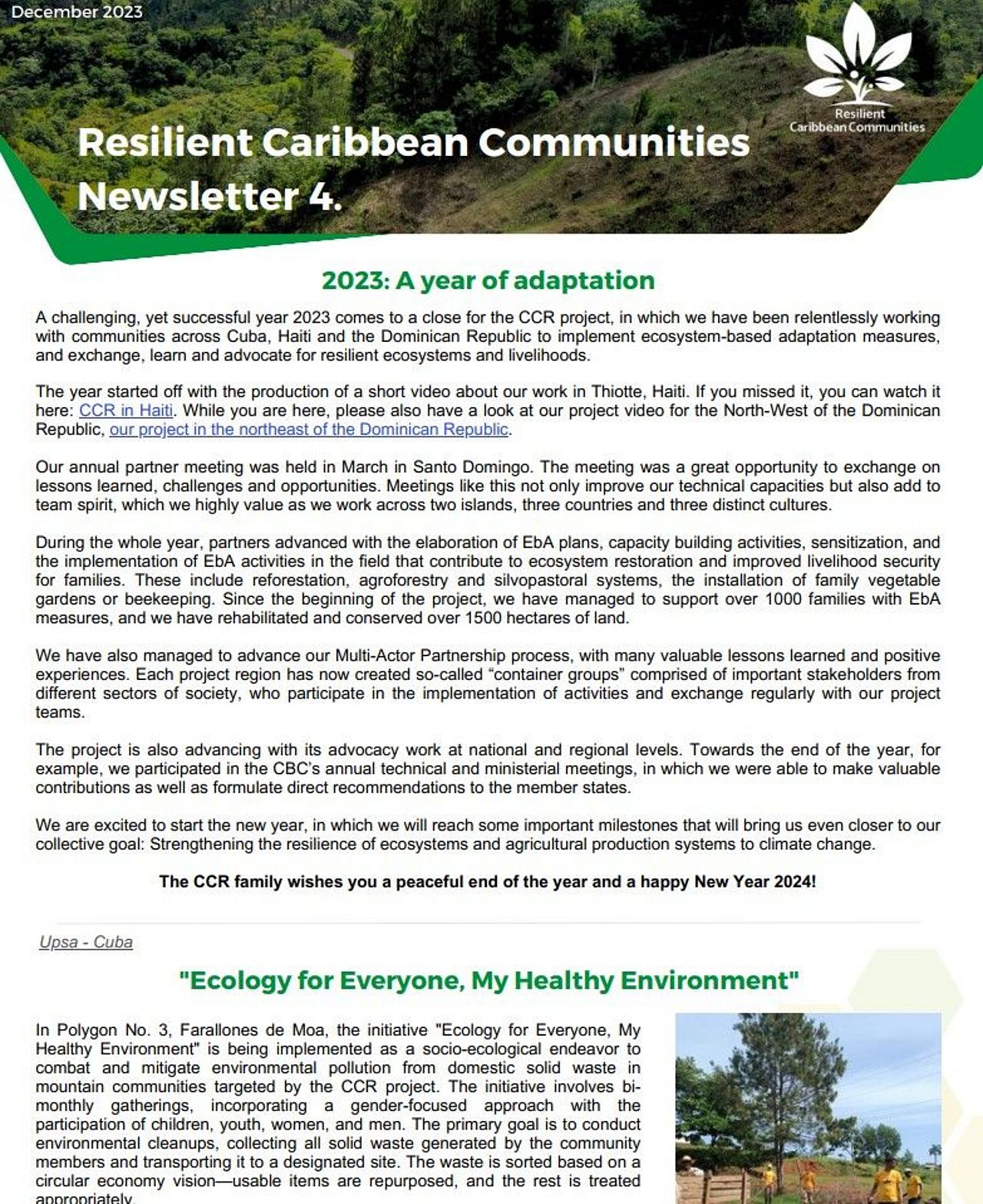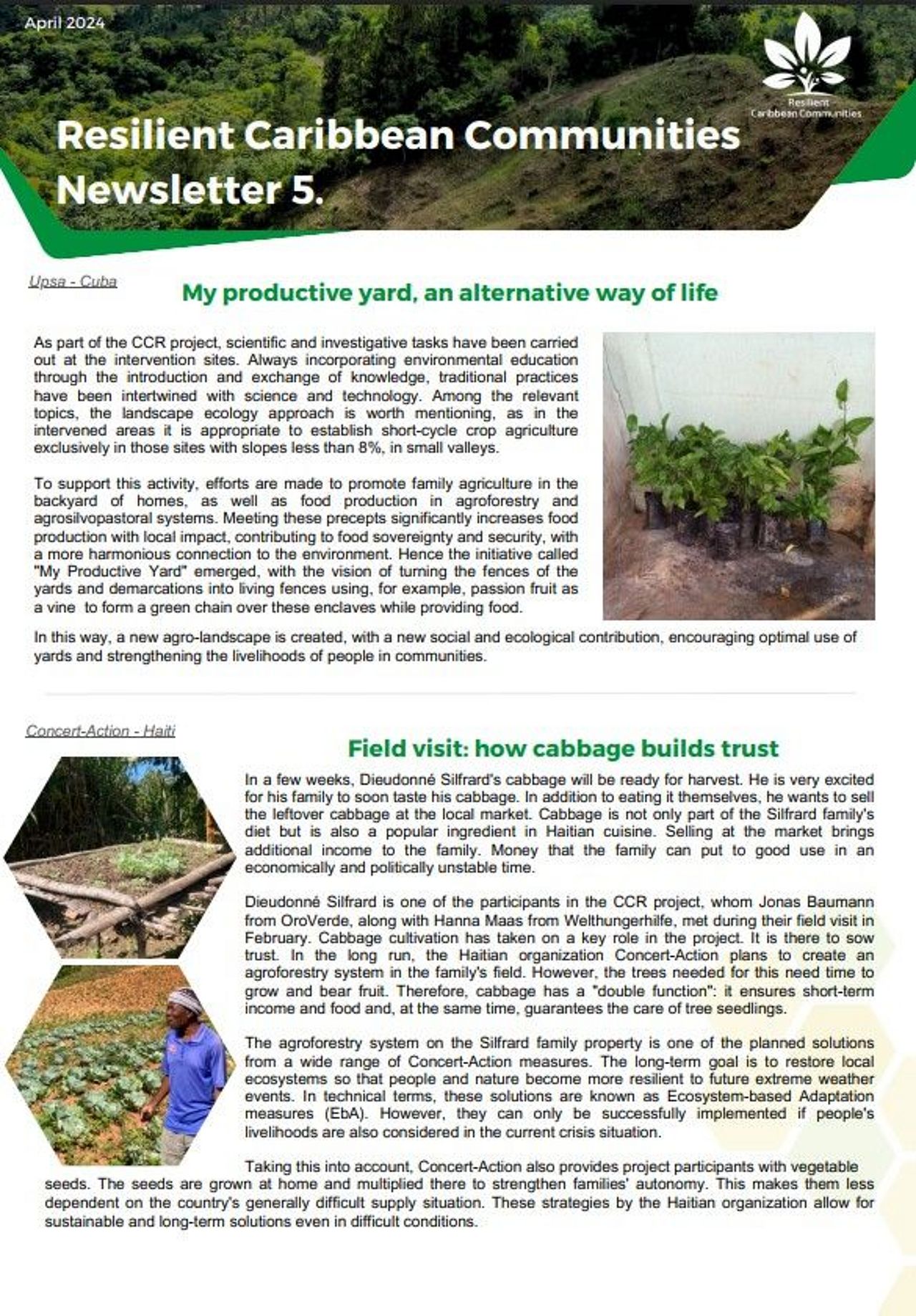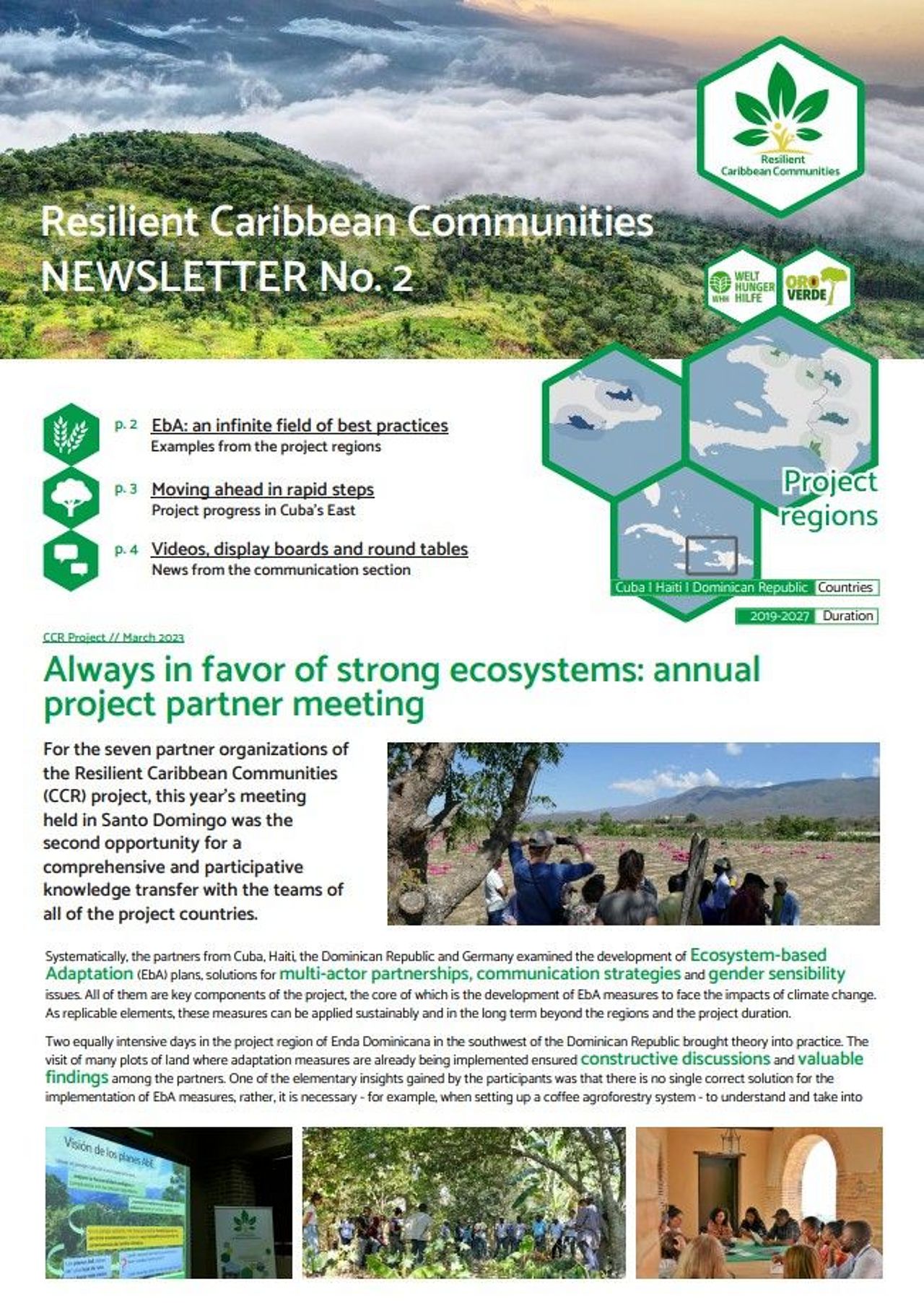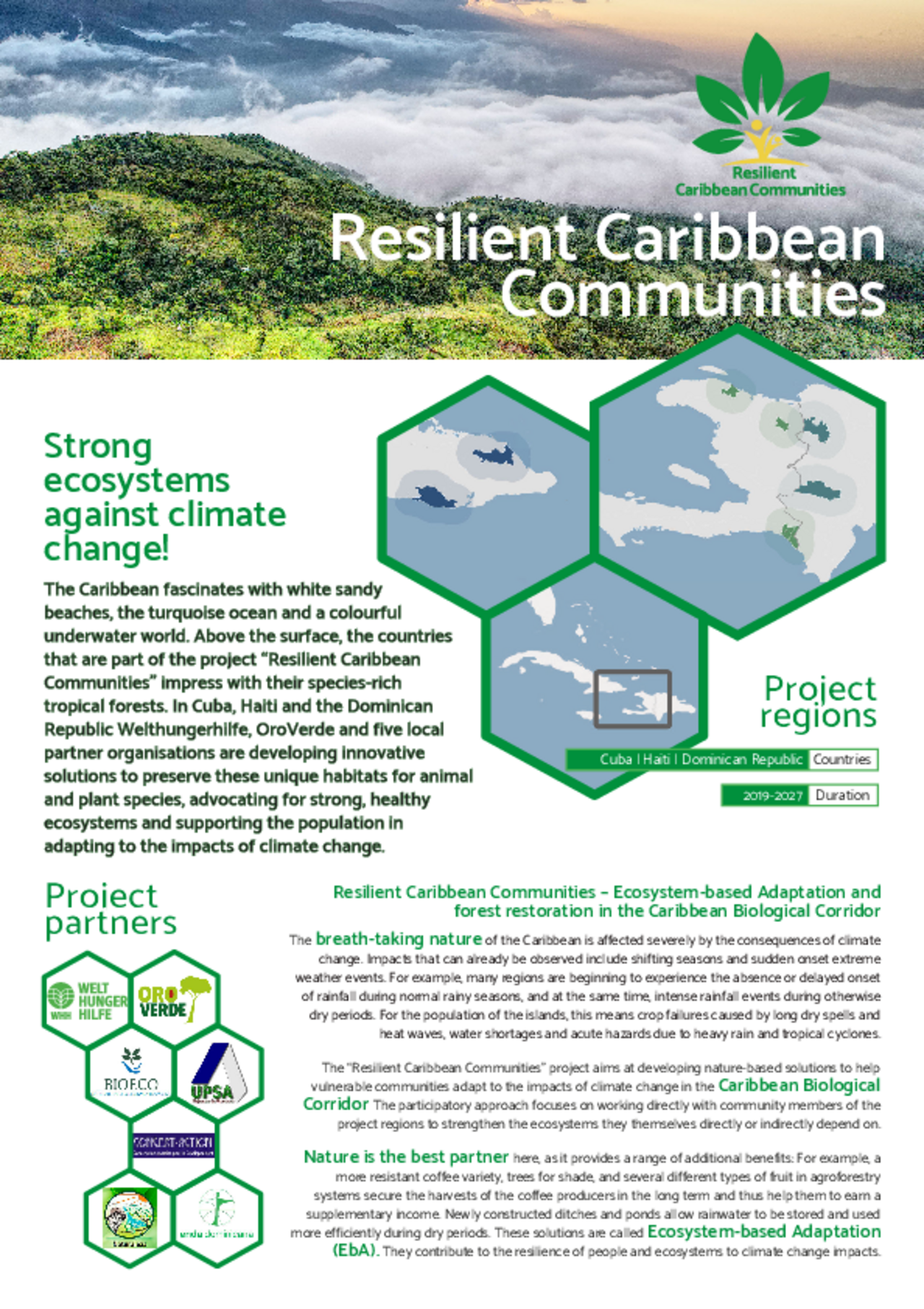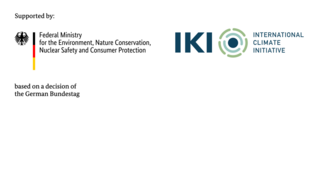The Caribbean fascinates with white sandy beaches, the turquoise ocean and a colourful underwater world. Above the surface, the countries that are part of the project “Resilient Caribbean Communities” impress with their species-rich tropical forests. In Cuba, Haiti and the Dominican Republic the German NGO Welthungerhilfe, OroVerde and five local partner organisations are developing innovative solutions to preserve these unique habitats for animal and plant species, advocating for strong, healthy ecosystems and supporting the population in adapting to the impacts of climate change.
Ecosystem-based Adaptation and forest restoration in the Caribbean Biological Corridor
The breath-taking nature of the Caribbean is affected severely by the consequences of climate change. Impacts that can already be observed include shifting seasons and sudden onset extreme weather events. For example, many regions are beginning to experience the absence or delayed onset of rainfall during normal rainy seasons, and at the same time, intense rainfall events during otherwise dry periods. For the population of the islands, this means crop failures caused by long dry spells and heat waves, water shortages and acute hazards due to heavy rain and tropical cyclones.
The “Resilient Caribbean Communities” project aims at developing nature-based solutions to help vulnerable communities adapt to the impacts of climate change in the Caribbean Biological Corridor (CBC). The participatory approach focuses on working directly with community members of the project regions to strengthen the ecosystems they themselves directly or indirectly depend on.
Nature is the best partner here, as it provides a range of additional benefits: For example, a more resistant coffee variety, trees for shade, and several different types of fruit in the agroforestry system secure the harvests of the coffee producers in the long term and thus help them to earn a supplementary income. Newly constructed ditches and ponds allow rainwater to be stored and used more efficiently during dry periods. These solutions are called “Ecosystem-based Adaptation” (EbA). They contribute to the resilience of people and ecosystems to climate change impacts.
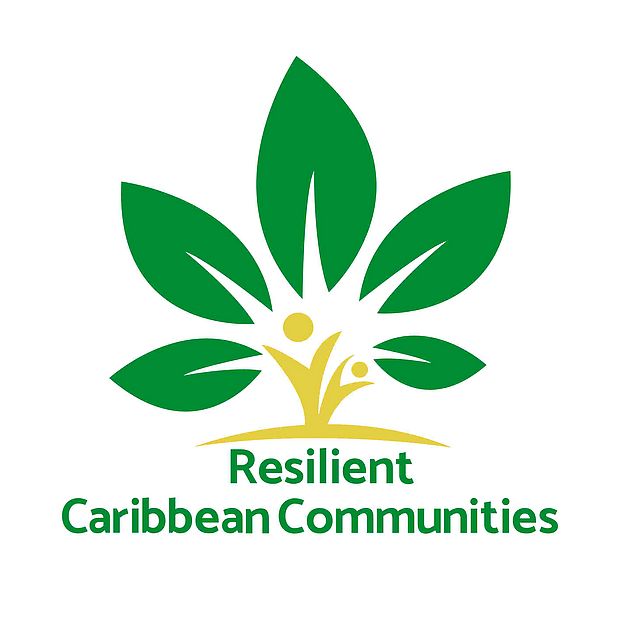
The EbA Approach
EbA integrates climate change adaptation with sustainable development and biodiversity conservation, creating synergies between human well-being and ecological health.
By supporting local engagement and knowledge sharing, EbA becomes a participatory process, reinforcing resilience while preserving traditional practices and cultural ties to the land. At the same time, the EbA approach allows to conserve and restore natural ecosystems and biodiversity, e.g. forested landscapes and the wildlife species living in specific habitats. As a people-centered approach, its key objective is to help communities strengthen their agricultural livelihoods and economic benefits, which depend directly or indirectly on multiple ecosystem services. By transforming and adapting their production systems according to the changing climate conditions, and by conserving and restoring the ecosystem services they depend on, the communities can increase their climate resilience.
The CCR project's 5 key goals:
- Improved livelihoods for the rural population of the Biological Corridor (CBC).
- Strengthened resiliency and adaptation capacities of communities and ecosystems.
- Development of innovative Ecosystem-based Solutions and Adaptation (EbA).
- Empowering local organizations as actors against climate change.
- Integration of EbA and into the National Adaptation Plans (NAP) and National Determined Contributions (NDCs).
Back to cooperation with nature
The importance of working with nature rather than against it becomes clear in both project videos – using the example of Centro Naturaleza (Dominican Republic) and Welthungerhilfe Thiotte (Haiti). Both partner organizations of the CCR project are working directly in the field to face the impacts of climate change, and literally put us in the picture: about the current situation in their project regions, about their personal observations and experiences on climate and biodiversity changes, and about initial steps to implement ecosystem-based adaptation measures to cushion these.
The video with Centro Naturaleza was presented at the COP27 in Sharm El-Sheikh for the first time – during a joint side-event under the title “Ecosystem-based adaptation in vulnerable rural communities – Experiences from Haiti, Cuba and the Dominican Republic”. The whole panel can be found on Youtube.
Project partners
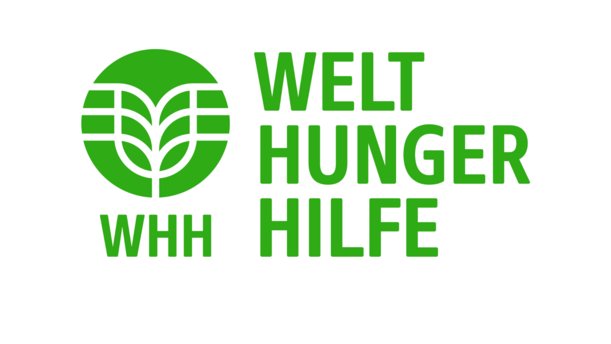
Welthungerhilfe is one of the largest private aid organisations in Germany. It is politically independent and non-denominational. Welthungerhilfe is fighting hunger around the world and is focusing its work around the Sustainable Development Goal 2: “Zero Hunger by 2030”.

Centro Naturaleza is working for almost 30 years in the field of sustainable agriculture, watershed management, environmental education and sustainable development projects in the Dominican Republic.

Since 1984 Enda Dominicana is working for better environmental and conservation protection in rural and urban communities.

Since 1997 the organization is working together with small farmers in the field of food security, environmental protection and agroforestry. Concert-Action realizes water access projects in the north and northeast of Haiti since 2005.
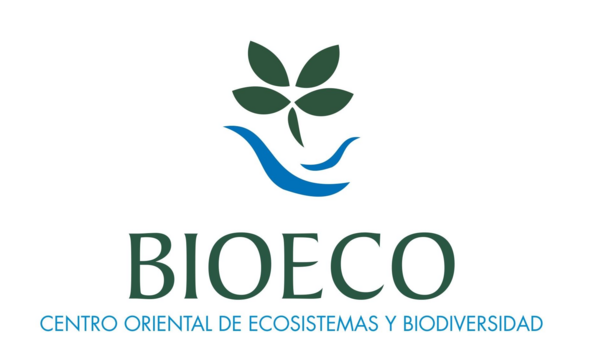
The Institute for Biodiversity and Ecosystem Conservation BIOECO in Santiago de Cuba works with its experts to protect the unique nature and biodiversity in Cuba. They promote sustainable cultural, economic and social development.

UPSA is the representative of the National Centre of Protected Areas (SNAP) in the province of Guantánamo, Cuba. It is in charge of the management and the scientific investigations of the Alexander-von Humboldt-National Park and other protected areas in the province.
Continue your Resilient Caribbean Communities journey
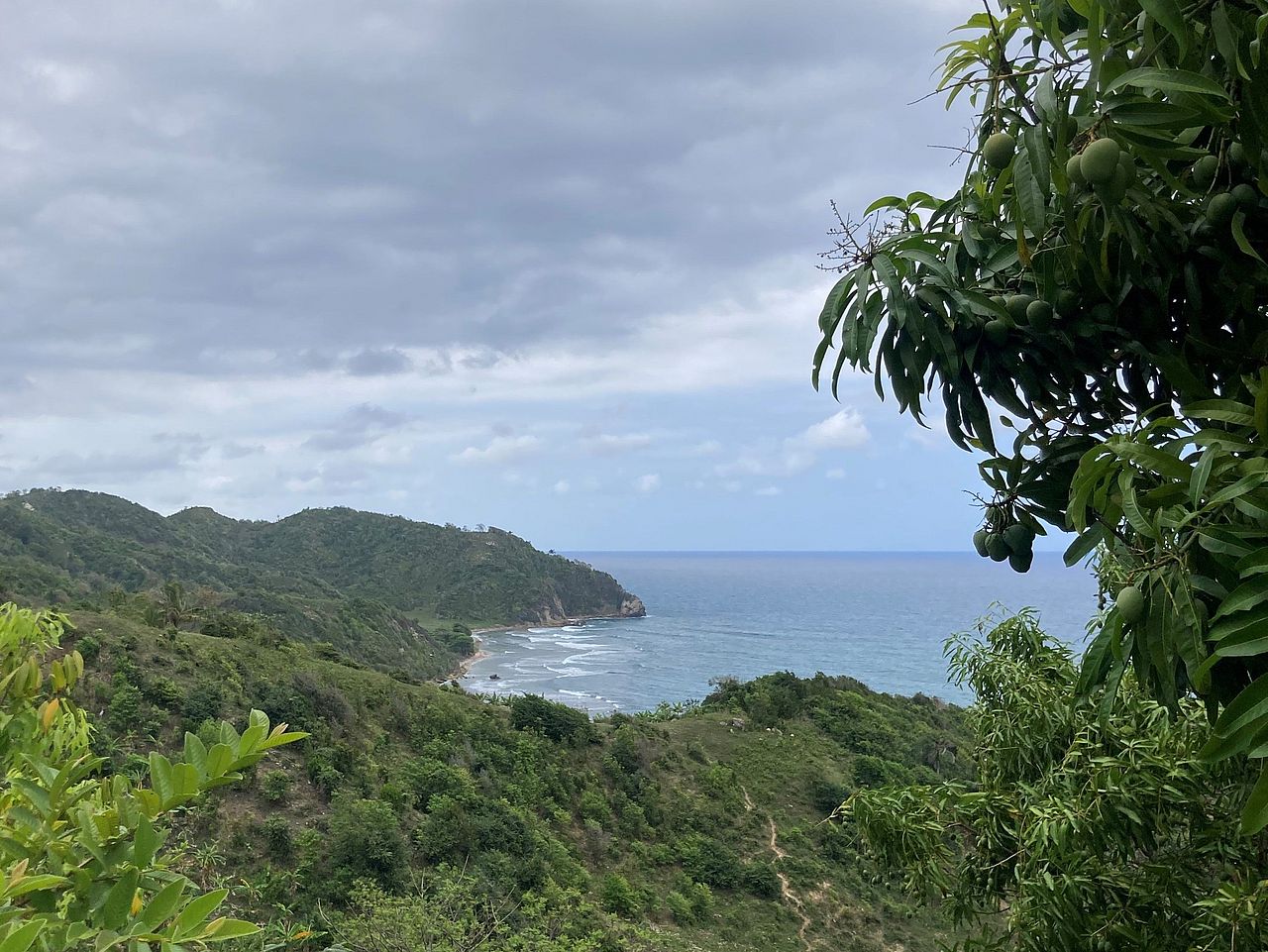
The CCR project website provides a deep insight into the approach, governance and best practices. You will also learn about the project regions in Cuba, Haiti and the Dominican Republic and the specific challenges faced and addressed by the partner organizations working there.
More about Ecosystem-based Adaptation to climate change:
Ecosystem-based Adaptation (EbA) is about long-term preservation of the ecosystem services required for human needs in spite of climate change. This includes cushioning the consequences of climate change (e.g. droughts, heat waves, but also heavier rainfall and more frequent flooding). Measures to maintain sustainable use and the restoration of ecosystems can thus help the local population to adapt to climate change. It is therefore a question of using biological diversity and ecosystem services to adapt to climate change. Such measures are usually much cheaper than "grey infrastructure" and often have further positive effects.
Here are a few examples:
- Mangrove forests protect coasts from storms and floods - and that is much cheaper than building dikes. In addition, the mangroves increase biological diversity and provide habitat for fish and shrimps, which in turn improve the nutrition and income of local people.
- Well-forested slopes can protect roads and other infrastructure from erosion and landslides.
- Agroforestry systems can protect soils and reduce the risk of crop failure by increasing the diversity of species. Preserving a greater diversity of species and different genes in natural and agroecosystems acts as a natural insurance in the process of adaptation to changing climatic conditions.
Fotography copyrights: OroVerde/K. Osen (Header), Enda Dominicana/D. Contreras (1.slide), OroVerde/J. Horstmann (2.,3., 5. slide), Welthungerhilfe (4. slide)


